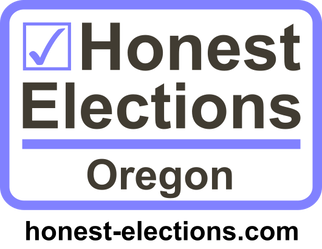Resourcesfrequently asked questions
Candidate election are covered. So what about non-county initiatives and referrals? Candidates only are covered by this charter amendment. Applying similar requirements on ballot measures would be desirable as well; however, we found it to difficult to include in a single measure. Isn't this unconstitutional? We know that some provisions have been deemed unconstitutional by the current interpretations of the US Constitution by the US Supreme Court. Those provisions are included because we want a statement of what we want, not what the courts have declared we can do. We have included a severability clause so that if in the future provisions are found to be unconstitutional, they can be removed and still allow the rest of the provisions stand. Hasn't the Oregon Supreme Court declared that limitations on campaign contributions and expenditures are unconstitutional? No, in fact the Oregon Supreme Court has not so ruled. When they overturned the 1996 limits enacted via an initiative campaign, they said that the limits had not been justified and, therefore, they tossed them. When Measure 47 in 2006 was written it included extensive justification for limits. However, because Oregon officials never enforced the measure's provisions, the Oregon Supreme Court has never had an opportunity to review the constitutionality under the Oregon Constitution. Will the provisions apply just to elections to county offices? Yes, the provisions of this ballot referral will apply to candidates running for Multnomah County elected offices only. Candidates running for non-county offices within Multnomah County are not covered by these provisions. Offices covered are Multnomah County Chair, county commissioner, county auditor and county sheriff. |
Join the list of endorsers
Volunteer with the campaign
Join the Email update list
|


